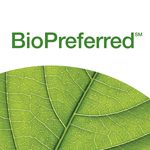Top 3 Industries that Need to Use BioPreferred Products
Businesses that show a commitment to the environment will gain public support and potentially even federal support when it comes to intermediate material and retail product procurement. With the introduction of the USDA BioPreferred® Program in 2011, businesses can now leverage off of their biobased materials with certification and official labeling on products.
The BioPreferred Program makes sense from a business perspective, and also from an environmental one. By decreasing reliance on non-renewable fossil fuel-based resources, businesses can reduce carbon footprints while also stimulating the economy for raw biological materials.
These are three industries where a dramatic shift to biobased products would have profound business and environmental benefits.
Plastics Manufacturing
Petroleum-based plastics are cost-effective to produce, durable, easy to form, and are widely used in industries around the world. Plastics have been hugely important for economic growth, but they’ve also had a significant negative impact on the environment. Toxic byproducts and waste are produced during the manufacture of plastic, and by the time plastic reaches the end of life, it ends up in a landfill without a chance of biodegrading within the next 400 years. All plastics break down at different rates, and the longest of some compounds is up to an estimated 1,000 years. While some plastics can be recycled, the process is energy intensive and is often cost prohibitive. A significant amount of plastic is incinerated, leading to greenhouse gasses, and a worrying amount of plastic ends up in oceans and key waterways.
Considering the environmental impact of plastic, it’s important that more environmentally friendly alternatives are used whenever possible. USDA Certified Biobased plastics are a significant step in the right direction.
Plastics that use biomaterial resins in place of petroleum products are becoming increasingly popular, and some of the world’s largest organizations are already embracing newer materials.
Not all biobased plastics will degrade at such a fast rate (biodegradability relies on a number of factors and varies for every product), but simply using renewable biobased resources for production is still better for the environment overall.
Companies producing packaging products can make the shift to bioplastics, and with USDA BioPreferred Program it is possible to use official labeling that will make products more competitive.
Food Processing and Packaging
Manufactured plastics find heavy usage in food processing and packaging, leading to the significant creation of end-consumer waste. Just like plastics outside of the food industry, these materials are usually fossil-fuel derived. By the year 2020, it is expected that more than 24 million metric tons of packaging will be used just for consumer food packaging.
Consumers are becoming more aware of their impact on the environment and are starting to make smarter decisions about the food that they purchase. Packaging can have a significant impact on the products that they choose. Businesses that adapt to use biobased packaging plastics will be able to take advantage of the USDA BioPreferred Program, giving them an edge within an environmentally conscious marketplace.
Construction and On-Site Safety
 Safety equipment is largely made from petroleum-based plastics. This is a key area of the manufacturing industry where stringent tolerances must be adhered to, which has led to the slow adoption of biobased plastics. Despite what some manufacturers and even some end users might believe, it has been proven that biobased plastics are not inherently inferior to those made using fossil fuel-derived materials.
Safety equipment is largely made from petroleum-based plastics. This is a key area of the manufacturing industry where stringent tolerances must be adhered to, which has led to the slow adoption of biobased plastics. Despite what some manufacturers and even some end users might believe, it has been proven that biobased plastics are not inherently inferior to those made using fossil fuel-derived materials.
Personal protection products including protective helmet shells are now produced using green high-density polyethylene. The polymer is just as stable and durable as standard HDPE, with the difference being that sugarcane-based ethanol is used in production. Some manufacturers have gained certification of up to 95% biobased plastic in their personal protection products.
With just three examples, it is clear that biobased materials are critical to our future and also that the use of biomass-derived products will not have a negative impact on quality or performance. Companies wishing to join the USDA BioPreferred Program can contact Beta Analytic to inquire about ASTM D6866 testing. All questions about the Program must be directed to the USDA.
Beta Analytic is not affiliated with ASTM or the USDA BioPreferred Program. The ISO 17025-accredited lab welcomes inquiries on ASTM D6866 biobased content testing. For price and turnaround time inquiries, please contact the lab.
Ready to send your biobased products?
Please read the lab’s instructions for USDA BioPreferred Program Applicants
You might also be interested in these topics:
What Does It Mean to Sell BioBased Products?
Customers are Becoming More Aware of What They Buy and are Choosing Biobased
Carbon-14 Analysis Brings Transparency to “Natural” Claims
This entry was posted on Saturday, February 27th, 2016 and is filed under Biobased Products, USDA Biopreferred Program .